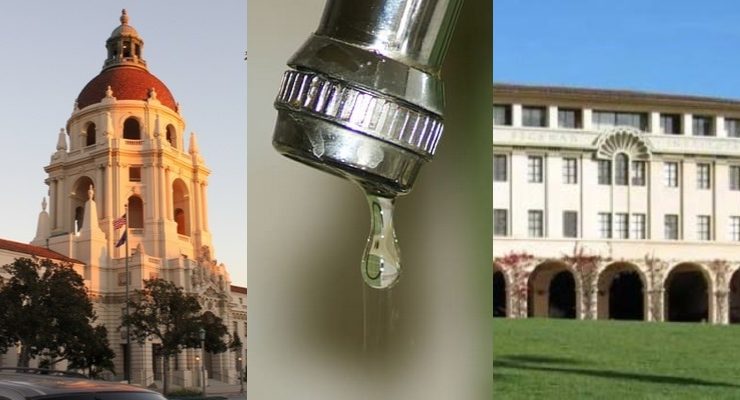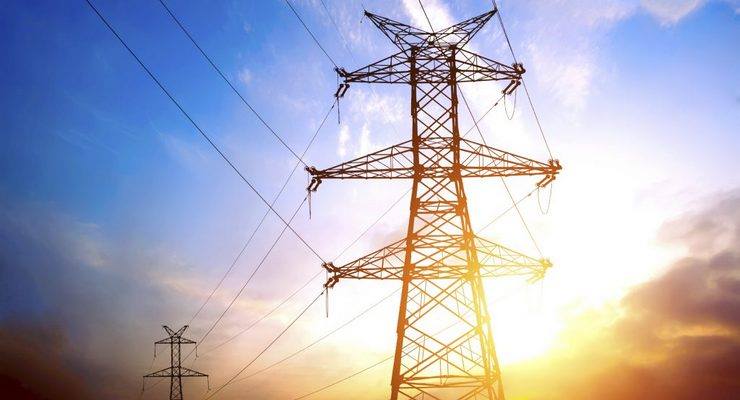
The city filed a lawsuit against Caltech earlier this month over groundwater contamination caused by rocket research done by Jet Propulsion Laboratory. Caltech operates JPL.
Toxic chemicals found in some of Pasadena’s groundwater include 1,2,3-trichloropropane, perchlorate, and carbon tetrachloride.
“It’s important to stress that the City’s drinking water meets or exceeds all State public health requirements prior to entering the distribution system,” the city said in a statement.
“All drinking water provided to residents and customers remains fully compliant with State and federal water quality and health and safety standards. Unfortunately, the City was compelled to file this lawsuit in order to ensure a continued safe, reliable and affordable water supply,”
The city gets 40% of its water from local groundwater, and purchases the rest from the Metropolitan Water District (MWD). Directors of the Metropolitan Water District, supplier of about 60% of Pasadena’s water, declared a ‘drought emergency’ earlier this month, calling on local water suppliers to implement all conservation measures possible to reduce usage.
In a statement from Caltech to Pasadena Now on Monday, the university said:
“We value our relationship with the City of Pasadena and its residents. We have a longstanding commitment to protecting the environment and will continue to work with local, state, and federal authorities to ensure the safety and welfare of the Pasadena community. We take the allegations in the complaint seriously, but remain confident in the efforts that have been undertaken to support the wellbeing of the community.”
The issue between JPL and the city over groundwater contaminated by chemicals goes back at least 14 years.
In 2007, Pasadena Water and Power (PWP) officials disputed a NASA study that claimed that dumping of rocket fuel in the 40s did not cause pollution that made much of the city’s groundwater undrinkable.
At that point, more than half of local groundwater resources were deemed unsafe by federal health standards. That combined with a nine-year drought forced the PWP to launch a campaign to encourage voluntary cutbacks in water consumption, said Water Division Director Shan Kwan, according to a 2007 article that appeared in the Pasadena Weekly.
NASA funded the cleanup of the four wells located near JPL.
Chemicals used to make and test rocket fuel as far back as the 1940s according to a page on the JPL website.
“As was common and accepted practice during the 1940s and 1950s, JPL disposed of wastes through cesspools,” the page reads. “As sewers became accessible to the Laboratory in the late 1950s, JPL discontinued the use of cesspools.”
But according to the lawsuit, JPL reportedly continued to discharge wastewater contaminated with chemical waste into the Arroyo Seco at least as late as 1990.
“Specifically, it was reported that on at least three separate occasions in 1990, approximately 600,000 gallons of wastewater contaminated with PCE was released by Caltech into the Arroyo Seco,” according to the lawsuit.
The Environmental Protection Agency designated the JPL facility a superfund site in 1991.
In 1980 Congress established the Comprehensive Environmental Response, Compensation and Liability Act (CERCLA) in 1980. CERCLA sites are also known as Superfund sites. The act allows the EPA to clean up contaminated sites and forces the parties responsible for the contamination to either perform cleanups or reimburse the government the work.
Caltech and NASA have been identified as “potentially responsible parties” liable for the cleanup.
Cleanup has focused on four “Monk Hill wells” in Northwest Pasadena. A water treatment center near those wells began operations in 2011.
The city claims that, according to its testing, the contaminants have migrated south and have polluted a number of other wells throughout Pasadena.
“If any of the city’s remaining wells experience problems that require them to be shut down for repair, the city will be forced to purchase more costly MWD water than it currently anticipates, rather than shifting to other wells, as it would have prior to the advent of contamination impacts limiting its operational flexibility,” the city says in its complaint.


















